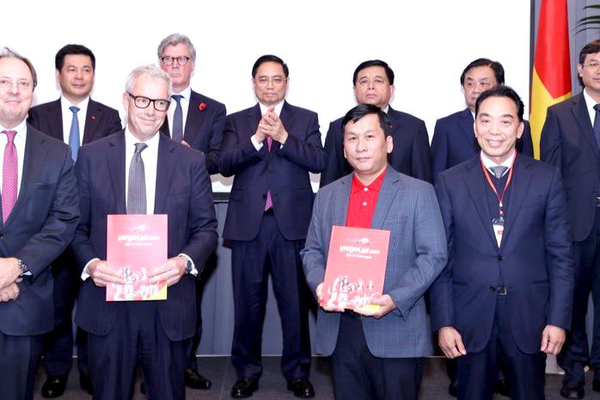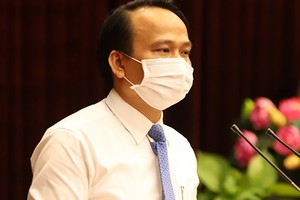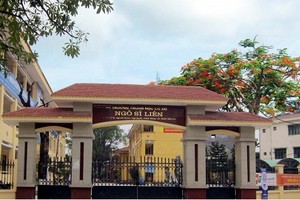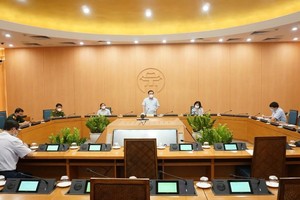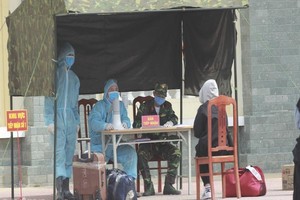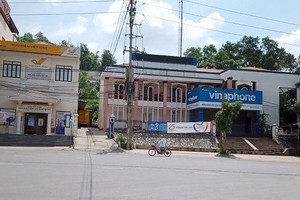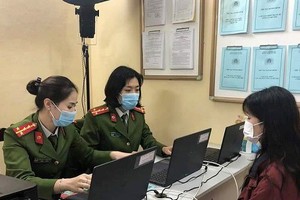Good news for Dragon Capital-managed funds last month was not enough to completely shore up the market but investors and traders are happy nonetheless.
Finally, Mr Dominic Scriven won the contest, closing months of wind-and-waves for himself and Dragon Capital since the departure of his long-time associate Mr John Shrimpton late last year. Shareholders of the Dragon Capital-managed Vietnam Enterprise Investments Limited (VEIL) and Vietnam Growth Fund Limited (VGF) last month voted against the wind-up of the funds, with 83.24 per cent voting at VEIL’s annual general meeting (AGM) and 89.22 per cent at VGF’s AGM.
 |
| The country’s stock market has developed rapidly in recent years, now standing at almost $40 billion. Photo: Viet Tuan |
Problems first surfaced late last year when Dragon Capital failed to maintain its control over the Nui Phao Mining joint venture in the northern province of Thai Nguyen, then reluctantly transferred it to the Masan Group, which caused concern among some shareholders. Together with the upheaval in the world’s financial markets and the downsizing of the net-asset-value (NAV) of Dragon Capital-managed funds due to falling Vietnamese equities, VEIL and VGF were the subjects of attention from VR Capital, a Moscow-based fund manager with holdings in the funds, which supported resolutions to wind them up. VR Capital lobbied a number of other hedge funds to seek the liquidation of VEIL and VGF - a move viewed as a direct attack on Mr Scriven and the Dragon Capital management team.
It is clear, however, that the substantial majority of shareholders want the funds to continue. According to Mr Richard McKegney, Chairman of VEIL, the continuation vote was written into the fund’s Articles of Association back in 1995 at the time of launch. This was before the stock market existed in Vietnam. “Shareholders have now had the chance to express their views and the strong consensus is to go forward,” he said in a statement released by the fund manager after the AGM held in Ho Chi Minh City last month. Mr Marc Faber, Chairman of VGF, said: “We are pleased with the confidence shareholders have expressed in the prospects for both Vietnam and the fund, by voting overwhelmingly to continue.”
Dragon Capital was well-prepared for the attack. In an attempt to revive shareholder confidence, the fund manager signed a cooperation agreement on June 29 with the Saigon Thuong Tin Real Estate Joint Stock Company (Sacomreal), a subsidiary of Sacombank, to invest in the local realty firm, in a move to expand its investment portfolios in real estate. The deal allows the fund management company to become a strategic partner as it will obtain 7.5 per cent of the 100 million shares Sacomreal planned to list on the Hanoi Stock Exchange in July. Mr Vu Huu Dien, Dragon Capital’s Director of Portfolio Management, said that because of the need to restructure its investment portfolios, the company decided to sell part of its Sacombank shares to expand its property investment portfolios.
Sacomreal has 18 property projects in the office, commercial, resort and apartment sectors, in Ho Chi Minh City, Da Lat, Hai Phong, Quang Nam and elsewhere. The realty firm sets target revenue at VND1,870 billion ($98 million) for this year, of which revenue from property activities will be around VND1,780 billion ($93 million), or 95 per cent of the total. It expects to earn profits of VND650 billion ($34 million) and plans to offer a dividend of 30 per cent to shareholders. Last year the company grossed nearly VND416 billion ($21 million) in revenue and recorded profits of VND137 billion ($7.2 million). “With its professional financial expertise, Dragon Capital analysed our current business development and projected our potential growth before deciding to become our strategic shareholder,” said Mr Dang Hong Anh, Sacomreal’s Chairman. “This will prompt other investors to invest in our shares.”
A week before last month’s AGM, Dragon Capital sponsored the launch of the first Asian regional fund to invest in Vietnam’s renewable energy, water and waste management. The Clean Development Fund has attracted commitments of $45 million in its first fundraising phase, with substantial contributions from leading financial institutions such as FMO, the Asian Development Bank, Finnfund and BIO. The Fund is the first sustainable investment fund to be launched in Vietnam and the biggest fundraising so far in 2010. The Fund can grow to a maximum of $100 million in a scheduled second fundraising phase in 2011. “This is an innovative fund, which will deliver solid financial returns and positive environmental and social impacts, in a set of developing countries in the Mekong and Brahmaputra regions,” said Mr Scriven. The Mekong Brahmaputra Clean Development Fund will finance projects in renewable energy, energy efficiency, water conservation and waste recycling in countries such as Vietnam, Laos, Cambodia, Thailand, Nepal, Sri Lanka, Bhutan and Bangladesh.
Market response
The possible liquidation of the Dragon Capital-managed funds influenced the equity market in recent times as the fund manager has been in Vietnam a long time and has total assets-under-management (AUM) of about $1.3 billion. In the week prior to VEIL’s and VGF’s AGM on July 12, the VN-Index fell 4.19 points, or -0.83 per cent, to close at 499.46 points, with 108 gaining, 108 falling and 20 remaining unchanged. Total volume reached $185.9 million, declining 11.4 per cent, while total value reached VND5,194.4 billion ($237 million), for a fall of 16.1 per cent during the week. Notably, liquidity fell to the lowest level since the beginning of the year, with just over 30 million shares traded with VND860 billion ($45 million) in value. “The market was mainly influenced by the adverse impacts of stock markets worldwide and investor caution,” explained Mr Quach Manh Hao, Deputy CEO of Thang Long Securities Company (TLS). “It seemed like the market was holding its breath while waiting for the decision on the future of VEIL. As the market was compressed for a while, it was likely to see heavy fluctuations when the decision was announced, regardless of whether it was for or against liquidation.”
The VN-Index fell around 2 points during the July 12 session but then closed near the day’s high. According to TLS, volumes continued to be compressed as the market waited anxiously for the voting result on the future of VEIL. “However, the recovery of the market during the latter half of the day indicated investors’ increasing expectation about the continuation of the fund in Vietnam, which was confirmed later in the afternoon,” said Mr Hao.
In fact, all fund managers were happier when both VEIL and VGF were not liquidated because Vietnam is generally seen as one of the world’s more promising frontier markets, as reform allows underlying demographic, social and cultural forces to come into their own as powerful growth drivers. The country’s stock market has developed rapidly in recent years, now standing at almost $40 billion, from less than $1 billion in 2005. “The results [of voting against wind-up] reflect a clear sentiment that now is not the time to be exiting Vietnam, given strong market fundamentals combined with low equity valuations,” said Mr Scriven. “The quality of macro-economic management is widely seen to be improving in Vietnam, as the government moves to tighten financial regulation, modernise monetary policy and build more stability into growth. GDP is expected to expand by 6.5 per cent this year.”
However, according to the State Securities Commission (SSC), total foreign indirect investment (FII) in the country’s stock market fell to $7 billion in 2009, from a peak of $11-12 billion in 2007. “But current rates of investment represent a significant recovery from the 2008 economic crisis,” SSC Chairman Vu Bang said late last month at the 10th anniversary of Vietnam’s stock market. A new State Bank of Vietnam report on FII showed that an estimated $1.8 billion worth of foreign capital was injected into securities during the first six months of 2010. The vote against wind-up at VEIL and VGF last month also reflects a vote of confidence in Vietnam, as Mr Scriven put it.
HA ANH
